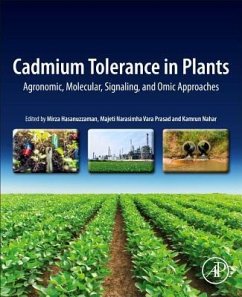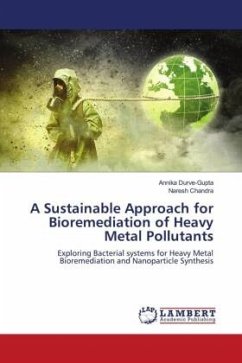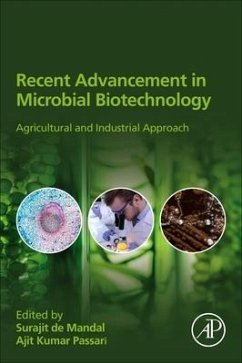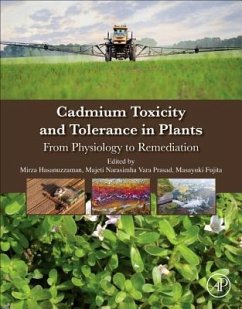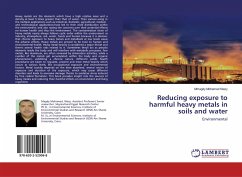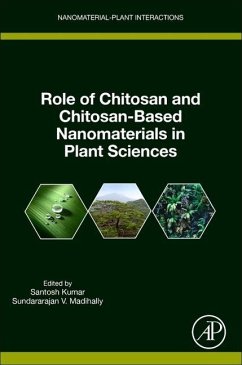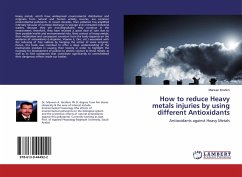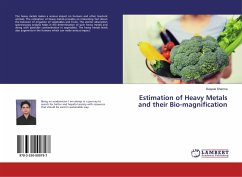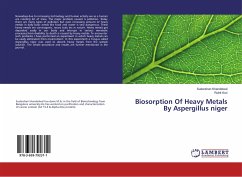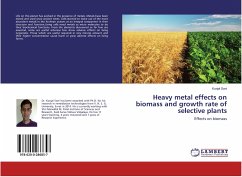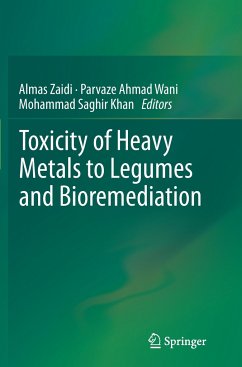
Toxicity of Heavy Metals to Legumes and Bioremediation
Versandkostenfrei!
Versandfertig in 6-10 Tagen
113,99 €
inkl. MwSt.

PAYBACK Punkte
57 °P sammeln!
This title discusses various effects of heavy metal exposure to legumes as well as the bioremediation potential of rhizosphere microbes. Availability of heavy metals, their uptake and the effects of metals on various signaling pathways within legumes are presented. Furthermore, the effects of heavy metals to nitrogen fixing microorganisms and how microsymbionts can overcome metal stress is presented in detail. The role of nitrogen fixers in decontamination of heavy metal toxicity, mycoremediation of metal contaminated soils, microbially mediated transformation of heavy metals and action of pla...
This title discusses various effects of heavy metal exposure to legumes as well as the bioremediation potential of rhizosphere microbes. Availability of heavy metals, their uptake and the effects of metals on various signaling pathways within legumes are presented. Furthermore, the effects of heavy metals to nitrogen fixing microorganisms and how microsymbionts can overcome metal stress is presented in detail. The role of nitrogen fixers in decontamination of heavy metal toxicity, mycoremediation of metal contaminated soils, microbially mediated transformation of heavy metals and action of plant growth promoting rhizobacteria and nitrogen fixers together in detoxifying heavy metals are broadly explained. This volume is a useful tool for scientists, policy makers and progressive legume growers intending to develop safe and healthy legumes for future generations.



